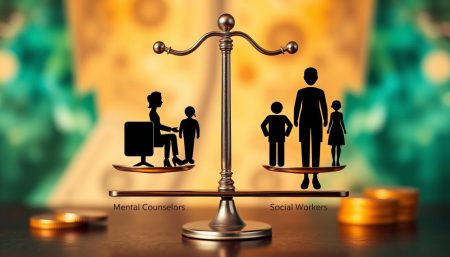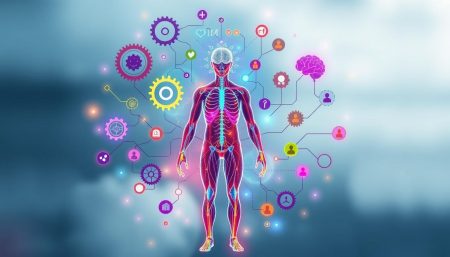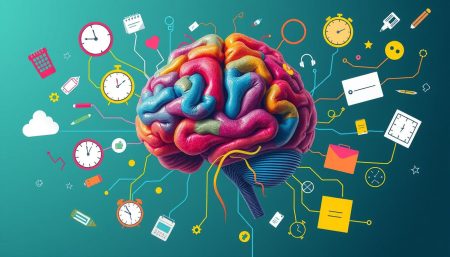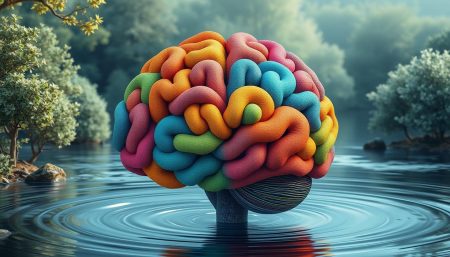What's Hot
- Understanding Metastatic Cancer and Treatment Options
- Understanding Lymphoma Cancer: Symptoms & Treatment
- Don Omar Cancer: Updates on Reggaeton Star’s Health
- Inflammatory Breast Cancer: Causes and Warning Signs
- Early Signs and Kidney Cancer Symptoms to Watch For
- Understanding Sarcoma Cancer: Types and Treatment Options
- Early Signs and Thyroid Cancer Symptoms to Watch For
- Early Signs and Symptoms of Colon Cancer to Know
Mental Health Conditions
May Is Mental Health Awareness Month
When May arrives, it brings a fresh start and a chance to talk about Mental Health Awareness. Our world is full of stress and activity. So, it’s crucial to take a month to focus on our Emotional Health. Mental Health…
When Is Men’s Mental Health Month
Every year, we set aside a special time to focus on male mental health awareness. This is Men’s Mental Health Month. It’s a time to talk about the mental health issues men face and how we can help. We aim…
Mental Health Counselors vs Social Workers
The importance of mental health is growing, shining a light on mental health professionals like counselors and social workers. Both aim to help people and communities. But, they have different jobs, work places, and education paths. It’s key to look…
In today’s world, social media is as common as breathing for teens. The effects of social media on the teen psyche are a big concern. We’re not just talking about how much time they spend online. We’re looking at how…
When Is Mental Health Awareness Month
In the United States, Mental Health Awareness Month is celebrated every May. This month is key for focusing on psychological wellbeing and pushing for mental health advocacy. It’s a time to fight stigma, educate people, and support policies that help…
Cyberbullying’s Impact on Teen Mental Health
The digital age has brought a new problem: cyberbullying. It deeply affects young minds. This article will explore how cyberbullying harms teens’ mental health. It looks at the effects of cyberbullying on mental health, mental health issues in teens, and…
How Does Social Media Affect Mental Health
Social media is now a big part of our lives. Studies show it can lead to more anxiety and depression. Experts say we need to understand how it affects our minds. There’s a lot of data showing online interactions can…
Teaching Young Kids About Mental Health
In early childhood, important parts of a child’s character and growth start to form. But, one key area often gets left out: mental health awareness for young children. As we move into a new era focused on wellbeing, teaching mental…
How Physical Conditions Affect Mental Health
We often see our physical and mental health as separate things. But, health psychology shows they are closely linked. The biopsychosocial model explains this connection well. It shows how our body and mind work together, affecting our health. When we…
The talk about ADHD awareness often centers on one big question: Is Attention-Deficit/Hyperactivity Disorder (ADHD) a mental health issue? The American Psychiatric Association says yes, ADHD is a chronic condition. It’s marked by patterns of not paying attention and/or being…
Is Neurodiversity a Mental Health Condition
When we explore the world of human minds, we often hear about neurodiversity. But what does it really mean? Is neurodiversity a mental health condition? To grasp neurodiversity, we must understand its link to mental health. Neurodiversity sees the differences…
In today’s world, mental health is getting the respect it deserves. The Family and Medical Leave Act (FMLA) is a big help for those with mental illness. It lets eligible employees take unpaid leave for health and family reasons, including…
Mental Health Conditions
Talking about mental health is more important than ever. Many people face the tough parts of their emotional and mental health. Mental health is not just the lack of illness; it’s a wide range of conditions.
Each person’s mental health journey is different. It’s key to highlight the many mental health issues that touch our lives. This talk aims to educate and build a kinder, more supportive community. Where mental health is talked about openly and cared for.
Mental Health Conditions Explained
Understanding mental health is key in today’s fast world. We’ll explore mental illness, psychological disorders, and psychiatric conditions. This will help us understand and support each other better.
Defining Mental Illness and Psychological Disorders
Mental illness covers many psychological disorders that affect mood, thinking, and behavior. Doctors worldwide recognize these conditions. They can change how people live and feel every day.
Psychological disorders are a part of this. They involve patterns of behavior or thoughts that affect life. This includes how we feel and our relationships with others.
The Different Types of Mental Health Issues
Psychiatric conditions fall into several types. Each has its own criteria and traits. For example, mood disorders like depression and bipolar disorder exist.
Anxiety disorders, such as panic and obsessive-compulsive disorder, are also part of this. So are personality disorders and psychotic disorders like schizophrenia. Behavioral health disorders, like eating and impulse control disorders, are included too. Knowing the type of disorder helps in finding the right treatment.
Common Misconceptions About Psychiatric Conditions
Many myths still surround psychiatric conditions. These myths can make people feel misunderstood and stigmatized. One big myth is that people with mental health issues are unstable or dangerous.
This is not true and is very harmful. It’s important to fight these myths. We need to create a supportive space where recovery and understanding can thrive.
Recognizing the Signs and Symptoms
It’s important to know the signs of mental illness and the symptoms of psychological disorders. These signs can show up in many ways, like big changes in how we act, feel, and think. Spotting these changes early can help us get the help we need.
Feeling sad or angry all the time is a big sign of mental illness. Also, if we’re always tired or can’t sleep well, it might be a sign of mental health issues. Remember, everyone shows symptoms differently, so it’s key to be aware and understanding.
Changes in how we act, like pulling away from friends or doing poorly at work or school, are warning signs. These signs might not be obvious at first, but they’re important clues about our mental health.
Understanding mental health means paying attention to these details. Talking openly about mental health and learning about the signs of mental illness helps create a supportive space. Giving people tools to check in on their mental health can help them take care of themselves better.
Treatment Options and Managing Mental Health Problems
Every person’s journey with mental illness is different. Doctors often use medicines and talk therapy to help. Medicines like antidepressants can really help with symptoms. At the same time, talking to a therapist can help you understand and deal with your feelings.
Changing your lifestyle and having support is also key. Exercise, eating well, and sleeping enough can improve your mental health. For serious cases, treatments like brain-stimulation or staying in a hospital might be needed. It’s important to get a correct diagnosis and work with a team to create a treatment plan. For more info, check out the Mayo Clinic.
Learning daily coping strategies can also help. Mindfulness, stress reduction, and joining support groups are good ways to get help. Today, there are many tools like mobile apps and online therapy to help manage mental health. Remember, asking for help is a sign of strength, and there are many resources to support you on your journey to better mental health.
FAQ
Q: What exactly are mental health conditions?
A: Mental health conditions, also known as mental illnesses or psychological disorders, affect how we think, feel, and act. They include mood disorders, anxiety disorders, and personality disorders. Recognizing these conditions is key to emotional and cognitive health.
Q: How are mental health issues diagnosed?
A: Healthcare professionals use manuals like the DSM or ICD to diagnose mental health issues. They look at symptoms, behavior, and other assessment tools. Early diagnosis and treatment can greatly improve outcomes.
Q: Are there different types of mental health problems?
A: Yes, mental health problems include mood disorders, anxiety disorders, and more. Each type has its own symptoms and treatment. This diversity requires tailored approaches.
Q: How do I recognize if someone has a mental illness?
A: Look for significant and persistent changes in mood, thoughts, and behavior. Signs include withdrawal, mood swings, erratic behavior, and concentration issues. Professional assessment is needed for a proper diagnosis.
Q: Are there common myths about psychiatric conditions?
A: Yes, myths include thinking people with mental illness are violent or weak. These myths lead to stigma and prevent seeking help.
Q: What treatment options are available for mental health conditions?
A: Treatments include psychotherapy, medication, support groups, and lifestyle changes. Plans are personalized and may combine these approaches. Holistic and alternative treatments are also used.
Q: How can I manage my mental health on a daily basis?
A: Manage mental health with healthy habits like exercise, balanced diet, and sleep. Stress management and social connections are also key. Seek professional help when needed and use recommended strategies.
Q: Where can I find support for psychological disorders?
A: Find support from mental health professionals, community groups, and online resources. These offer information, tools, and connections with others facing similar challenges.























